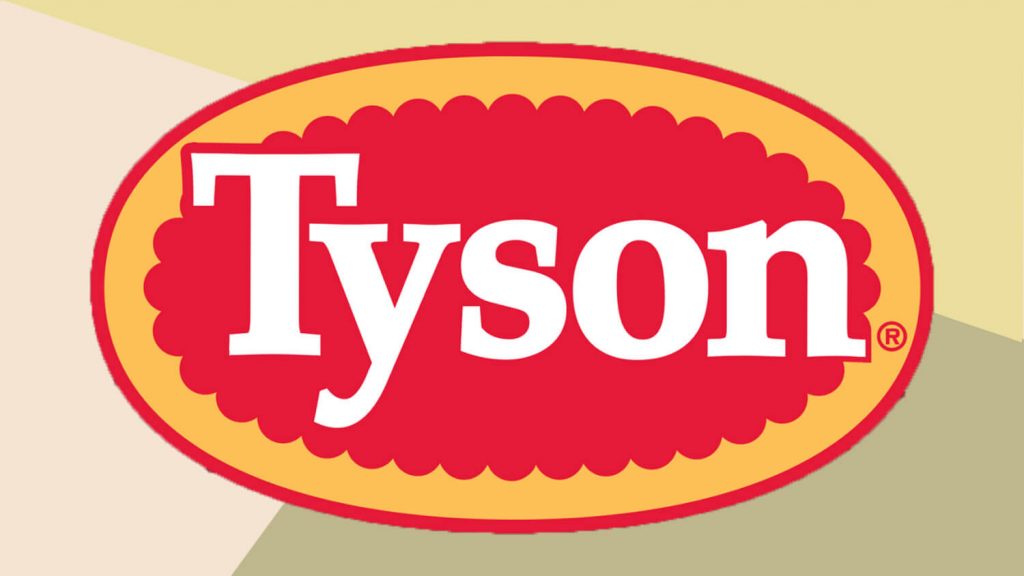Tom Hayes, the CEO of major U.S. meat producer Tyson Foods, believes that investing in vegan food was a wise decision for the company. Speaking to Feedstuffs, the animal agriculture industry’s leading source of news and analysis, Hayes stated: “If you can’t beat ’em, join ’em, right?”
Hayes was referring to a series of investments in plant-based food that Tyson has made over the past couple of years. In 2016, the meat giant launched Tyson Ventures LLC, a $150 million venture capital fund dedicated to investing in emerging brands that are developing “breakthrough technologies, business models, and products” that have the potential to create a more sustainable food system. Last December, Tyson increased its five percent stake in vegan meat brand Beyond Meat that had been established the previous year.
While the new investment was not disclosed, Tyson’s capital has helped the plant-based meat company to expand its distribution to more than 20,000 grocery stores across the U.S., triple its production, and more than double its sales since the initial investment. Despite pushback from vegan consumers who cried hypocrisy, the numbers don’t lie – and Beyond Meat CEO Ethan Brown acknowledges the value in striking a deal with the meat producer.
“We got attacked when we signed a deal with Tyson. People said I personally have blood on my hands. Tyson took a big risk, too. I mean Hayes didn’t get any love letters when he backed us. But I’d much rather try to get things done than throw stones, and the people at Tyson know how to move the needle,” he said. Indeed, the brand is making an impact. Brown has gone on the record stating that he refuses to sell the vegan Beyond Burger, a plant-based patty that looks, cooks, and tastes like the real thing, to potential retailers unless it will be sold in the meat aisle. According to the brand, 70 percent of the Beyond Burger’s customers are meat-eaters.
ushering in the future of protein
Conversely, Hayes received criticisms from meat suppliers. However, he acknowledges that capturing the“momentum” of the $3.3 billion plant-based food market is worth the investment as members of the younger generation are increasingly reducing their meat consumption and gaining more purchasing power. “I took this job to help revolutionize the global food system,” he said, though many critics have pointed out that Tyson Foods remains a meat industry leader, slaughtering upwards of 1.8 billion animals per year through factory farms that have been rightfully critiqued to contributing to pollution, labor violations, and animal cruelty.
Hayes, however, believes that Tyson’s size makes it the ideal candidate for investing in brands that hold the potential to change the food system. In his first few months as CEO, Hayes created two new roles – chief technology officer and chief sustainability officer – to help usher in new developments. One such development includes shifting the public perception of Tyson from a meat producer to a “protein” producer. In addition to taking a stake in Beyond Meat, Tyson is an investor in Israeli clean meat startup Future Meat Technologies Ltd. and San Francisco-based cultured meat brand Memphis Meats.
“We’re so big that the industry can’t change if we don’t lead,” Hayes said. In addition to investing in both vegan and slaughter-free meat brands, Tyson is formulating plant-based protein bowls to be sold under its vegetarian brand, Green Street, which are set to launch in 2019. “…We want to actively disrupt ourselves. We don’t want to be Kodak.”
Though Hayes says that he cannot see animal agriculture becoming obsolete in his lifetime, he believes that plant-based protein will become “a substantial part” of the global meat market and stated that Tyson will continue to remain an investor in the burgeoning vegan and clean meat brands “until they mature a bit more.”
However, in-house vegan meat production is not off the table. “If we can grow the meat without the animal, why wouldn’t we,” Hayes asked.
Image Credit: Tyson Foods


